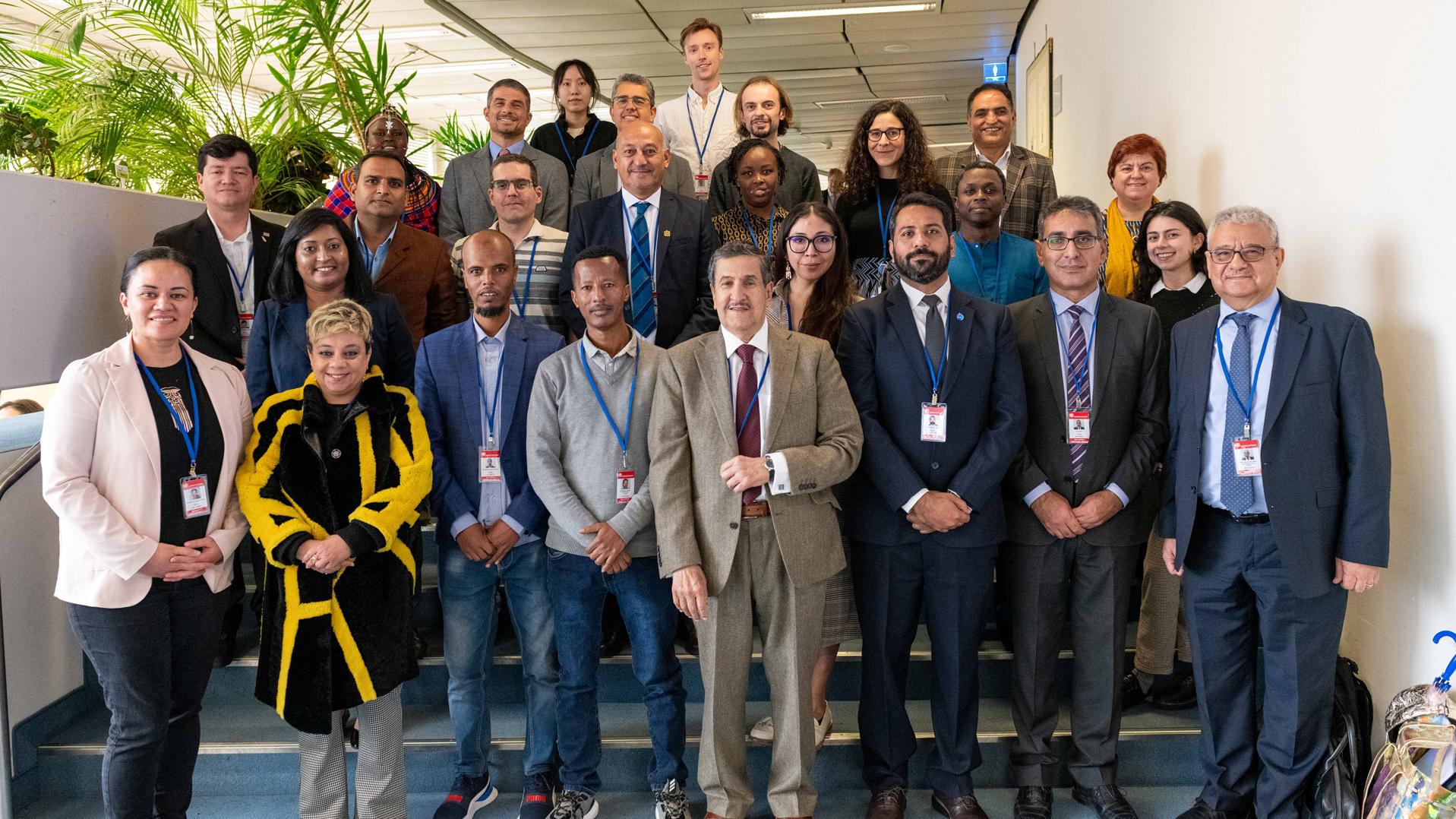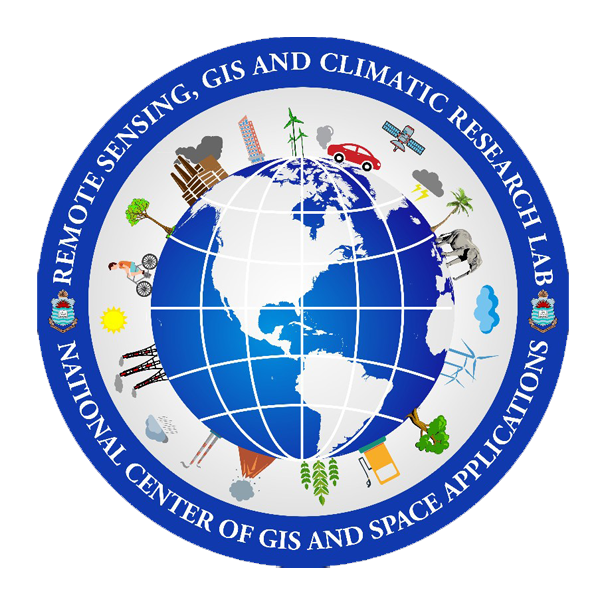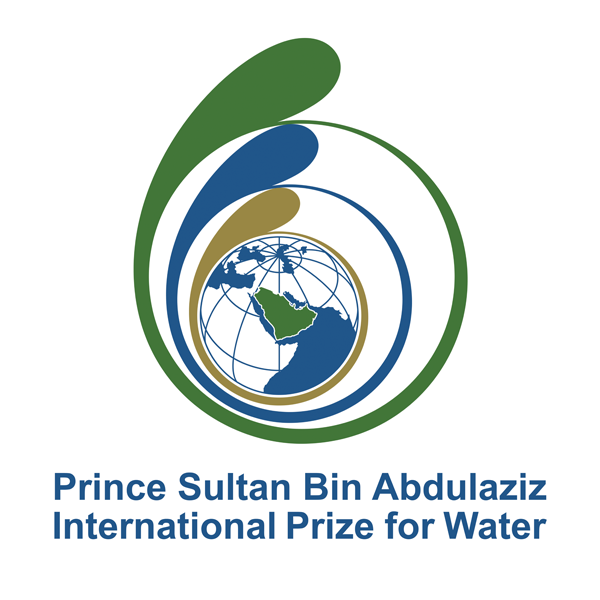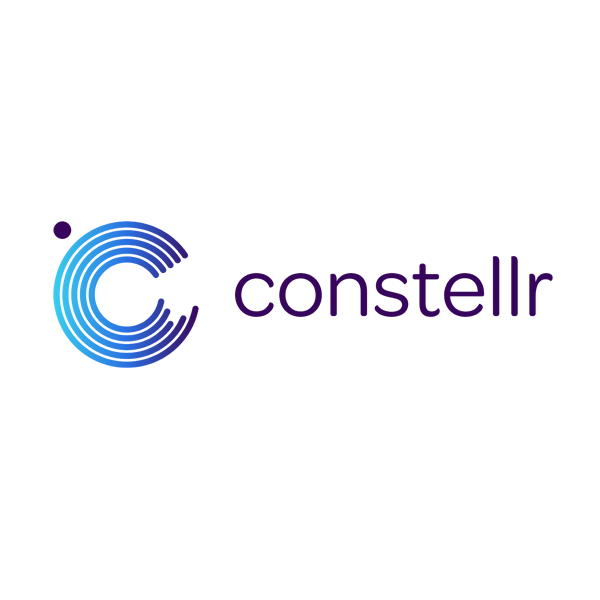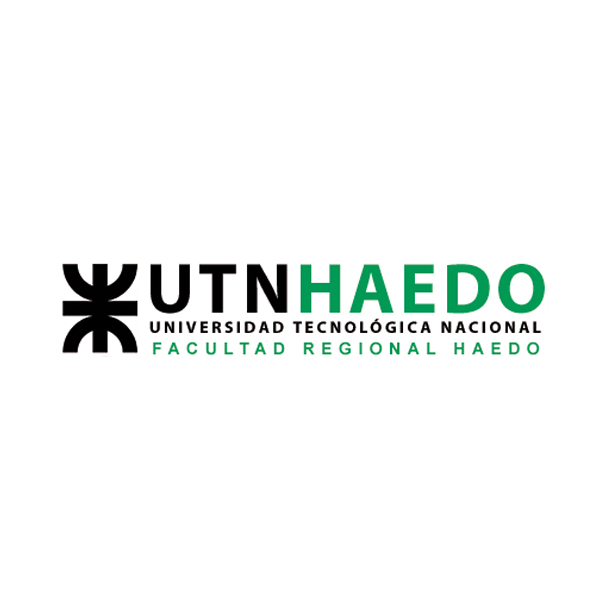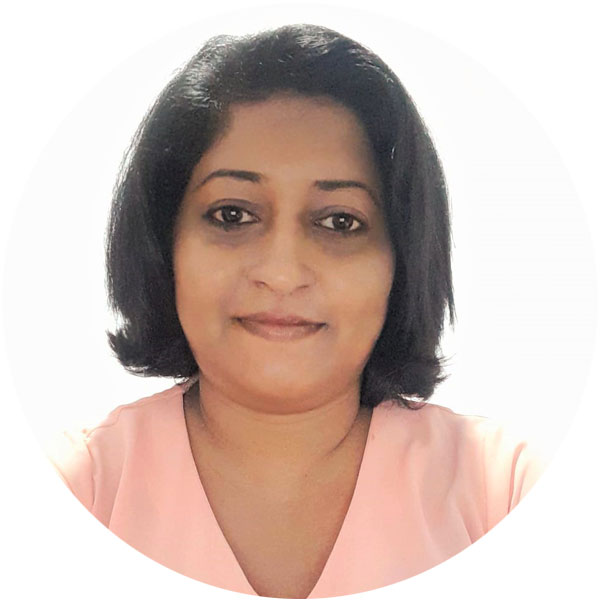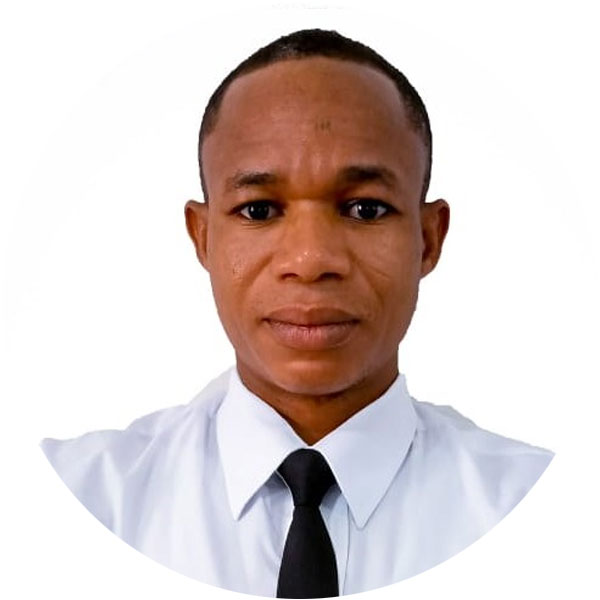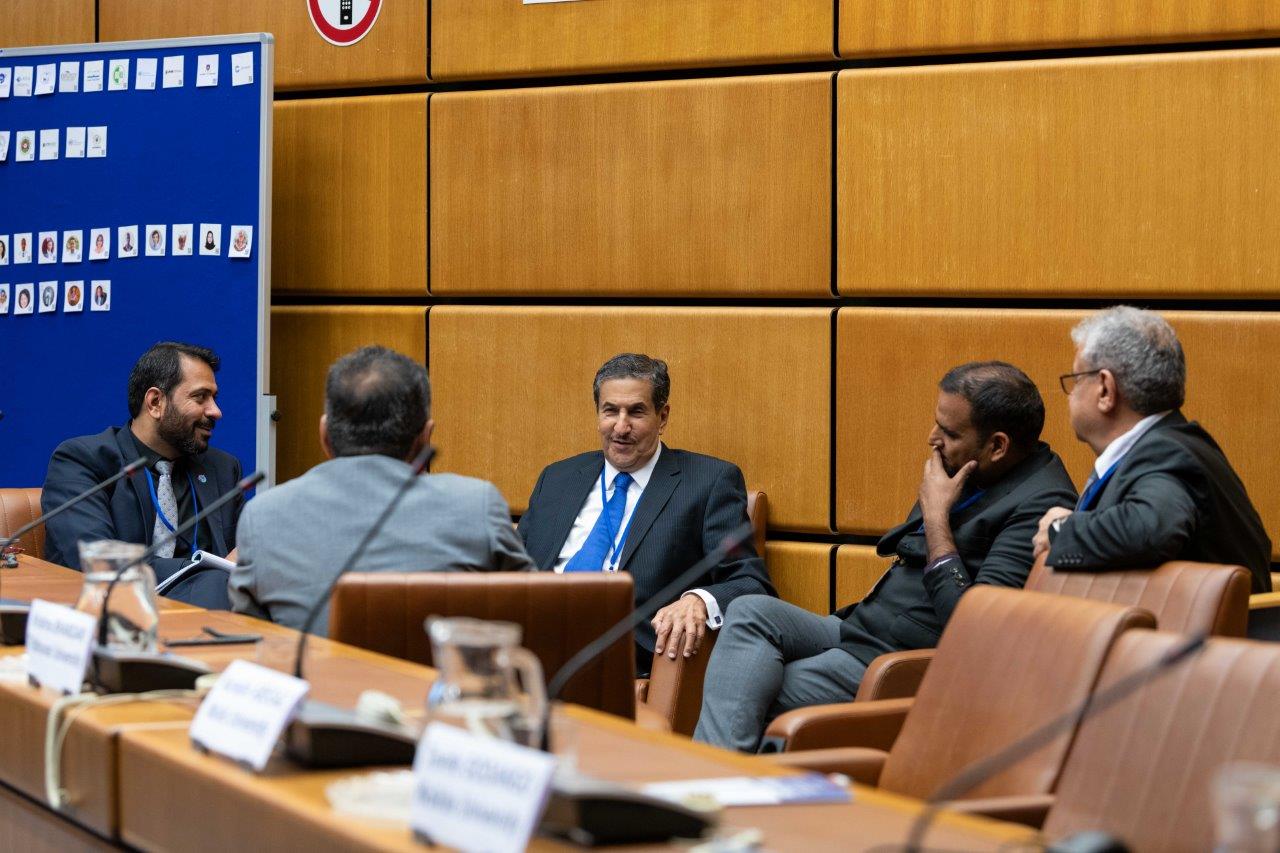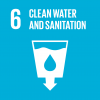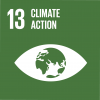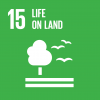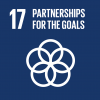co-organised by the United Nations Office for Outer Space Affairs (UNOOSA)
and the Prince Sultan Bin Abdulaziz International Prize for Water (PSIPW)
on 24-25 October 2023, Vienna International Centre, Conference Room 6 and online
Objectives
At the Third Space4Water Stakeholder Meeting the community had an opportunity to meet and exchange. The objectives for the meeting included:
- Fostering knowledge exchange between Space4Water stakeholders, professionals, young professionals, and Indigenous voices;
- Co-developing space-based solutions for water-related challenges; and
- Identifying and addressing other ways to improve Space4Water community interaction and reaching shared objectives.
Programme
The programme covered ten sessions, an opening session, a session dedicated to the introduction of participants, three sessions with technical presentations one on space technologies and water security, one on space technologies and water quality assessment and one on data, systems, software and tools for water resource management and hydrology. Interactive sessions of the event included one on the Space4Water community, a session in which a panel discussion on multi-stakeholder engagement, communities and informed decision-making, followed two keynotes on related topics. Finally a hands on session to co-create space-based solutions for already identified water-related challenges was hosted and presentations on the draft solutions delivered
The third Space4Water stakeholder meeting was opened formally by the Director of UNOOSA, via pre-recorded opening speech, in which she highlighted the ongoing global water crisis, efforts by the international community, such as Agenda 2030, the Global Acceleration Framework, and the need for action and for collaboration to address water issues globally. She also highlighted the interconnectedness of water to many aspects of live on Earth and thereby the necessity to address water issues. Laying out the potential of space technologies to do so, she added stating the space sector must not become yet another sector in which a divide is apparent. There is a need for capacity building and UNOOSA will pursue its activities to fulfill its mandate on water.
The Director of the Prince Sultan Bin Abdulaziz International Prize for Water (PSIPW) delivered opening remarks. The Prize was established in 2002 and consists of 4 specialized prizes covering the entire water research landscape that are awarded every two years. The deadline for 11th nomination is open until the 31st December 2023. The Director spoke about the longstanding relation with UNOOSA that dates back the first international conference on the use of space technology for water management in 2008. A Memorandum of Understanding was signed in 2016 renewed in 2021 setting up cooperation with UNOOSA on Space4Water portal and project. PSIPW acknowledged the work of UNOOSA in implementing this project.
A presentation on the Space4Water Project was delivered by the project staff who provided an overview of the project with its three pillars, the conference series, the portal and the community building. Over the past years, the project brought together over 600 people from over 140 countries through 5 conferences. The portal, launched in 2018 is continuously further developed. Statistics on portal content and users were shared.
Technical presentations were delivered in three dedicated sessions on the below listed themes and can be downloaded from the linked profile pages:
Space technologies and water security
-
Water resources mapping and monitoring using remote sensing and GIS technologies - Amjad Ali, Pakistan Space and Upper Atmosphere Research Commission (SUPARCO)
-
Spatial analysis for addressing water scarcity in arid and semi-arid areas – Claire Muhungi, Kenya Space Agency
-
Spatial exploration for monitoring water stress: towards a new paradigm for the optimal management of irrigation water in the Doukkala region (Western Morocco) – Kamal Labbassi, Université Chouaib Doukkali and African Association of Remote Sensing of the Environment
-
Modelling the impacts of climate change and land use/land cover dynamics on ecosystem services: A case study of Pindar watershed in India Himalaya - Pankaj Kumar, G.B. Pant University of Agriculture and Technology.
-
Space-Based Thermal Infrared Intelligence for ex-Peatland Identification, Sam Arne Whalley, constellr
-
Sustainable management of the ancient Yoda Ela by applying nature-based solutions – Padmi Ranasinghe, University of Texas at Arlington; United Nations University Institute on Comparative Regional Integration Studies (UNU-CRIS)
Space technologies and water quality assessment
-
Assessing Total Suspended Matter and Secchi Disk Depth using
Sentinel-2 satellite data - Mahmood Khalid, Remote Sensing, GIS and Climatic Research Lab, University of the Punjab, Pakistan
-
Water quality analysis of Phewa and Begnas lakes using remote sensing – Krishna Bhandari Prasad, Center for Space Science and Geomatics Studies, Nepal
-
Spatiotemporal variability of the Lake Tana water quality derived from the MODIS-Based Forel-Ule Index: The roles of hydrometeorological and surface processes - Nuredin Teshome Abegaz, Wollo University, Ethiopia
-
Assessment of seasonal dynamics of suspended matter and
chlorophyll-a concentration in Ziway and Hawassa lakes of the Rift Valley lakes basin, Ethiopia using Sentinel-3A data - Terefe Hanchiso Sodango, Wolkite University, Ethiopia
-
The effect of global warming on dissolved oxygen (DO) concentrations in the Nile river - Sherine El Baradei, German University in Cairo, Egypt
Technical presentations: Data, systems, software and tools for water resource management and hydrology
-
Atlas-Study Hydrographic Dataset (BHAE): An Approach to the homogenization of multiscale databases - Alexandre De Amorim Teixeira, National Water and Basic Sanitation Agency (ANA), Brazil
-
Introducing EOdal: An open-source software for Earth Observation data analysis - Lukas Valentin Graf, Swiss Federal Institute of Technology (ETH) in Zurich
-
Forecasting discharge and water levels of rivers and dams using Earth Observation and AI - Mariana Damova, Mozaika, Bulgaria
-
Risk Exposition Indicator for irrigation users associations, a space-based tool for risk management of rural communities’ water resources. - Luis Monge, Inter-American Institute for Cooperation on Agriculture (IICA), Costa Rica
Panel discussion on multi-stakeholder engagement, communities and informed decision-making
The session was started with the the below-listed two presentations were delivered to inspire the panel discussion.
-
Real-time monitoring related impacts of mining sector on the cocoa industry - Amos Kabo Bah, University of Energy and Natural Resources, Sunyani, Ghana
-
The groundwater paradox explained by an Indigenous scientist: Earth observation, a tool to support decision-making and consensus on groundwater among society, science, and policy - Yolanda Lopez-Maldonado, Indigenous science, Mexico
The panel discussion raised questions about effective decision-making regarding groundwater issues and the importance of increasing groundwater literacy among stakeholders. The role of Earth Observation (EO) and geospatial technology in supporting informed decision making and water governance as well as the challenges of capacity building were discussed. Brazil can be seen as one positive example, where reports on water resources by governmental agencies are developed based on remote sensing data.
The importance of elevating indigenous voices in environmental justice and policy-making was stressed, along with the need for respect and meaningful inclusion of indigenous knowledge.
Furthermore, challenges, needs and services related to upstream and downstream applications of water management were discussed, focusing on the importance of collaboration among stakeholder institutions.
To conclude, the panel emphasized the importance of raising awareness, inclusivity, and respect for indigenous knowledge, as well as the need for data integration, capacity-building, and cooperation among diverse stakeholders to address water and environmental challenges.
From water-related challenges to space-based solutions
A highlight on the second day were sessions focusing on the co-design and development of space-based solutions for previously identified water-related challenges. We started with presentations on the progress of challenges that had been worked on since the second Space4Water stakeholder meeting and continued with new collaborations to address pressing water issues. Have a look at the photos taken at the hands on sessions. All drafted solutions will be shared (gradually) here.
Lightning talks
Six lightning talks were delivered and can be accessed here. Topics covered include:
- Satellite-based chlorophyll-a monitoring in north-eastern Brazil - Dhalton L. T. Ventura, Specialist in water resources regulation, Brazilian National Water and Sanitation Agency – ANA
- Glacier retreat in Patagonia, Ailin Ortone Lois and Guido Pilato, Haedo Regional Faculty, National Technological University, Argentina
- Feasibility of satellite rainfall estimates for the Zambezi Basin - Webster Gumindoga, Department of Construction and Civil Engineering, University of Zimbabwe
- Long-term spatio-temporal variation of surface water storage from space over 24years - Benjamin Kitambo, Democratic Republic of Congo, Centre National de la Recherche Scientifique, France
- Evaluation of Kokoligu reservoir using spatial techniques in the Upper West Region, Ghana - Benjamin Wullobayi Dekongmen, University of Energy and Natural Resources, Ghana
Outlook
With very positive feedback by participants (to date 4.8 out of 5 points in the rating), the event was a true success. Follow up actions will include the continued work on the development of space-based solutions for a more water secure world, as well as the continuous improvement of the interactions between the members of this increasingly active community of practice.
An A.C. 105 report is currently being written and will be published in the coming months.
Participants
Click on the teasers below to access information on and shared resources by our participating stakeholders, indigenous voices, professionals and young professionals.
Report
Access the Meeting report here.



